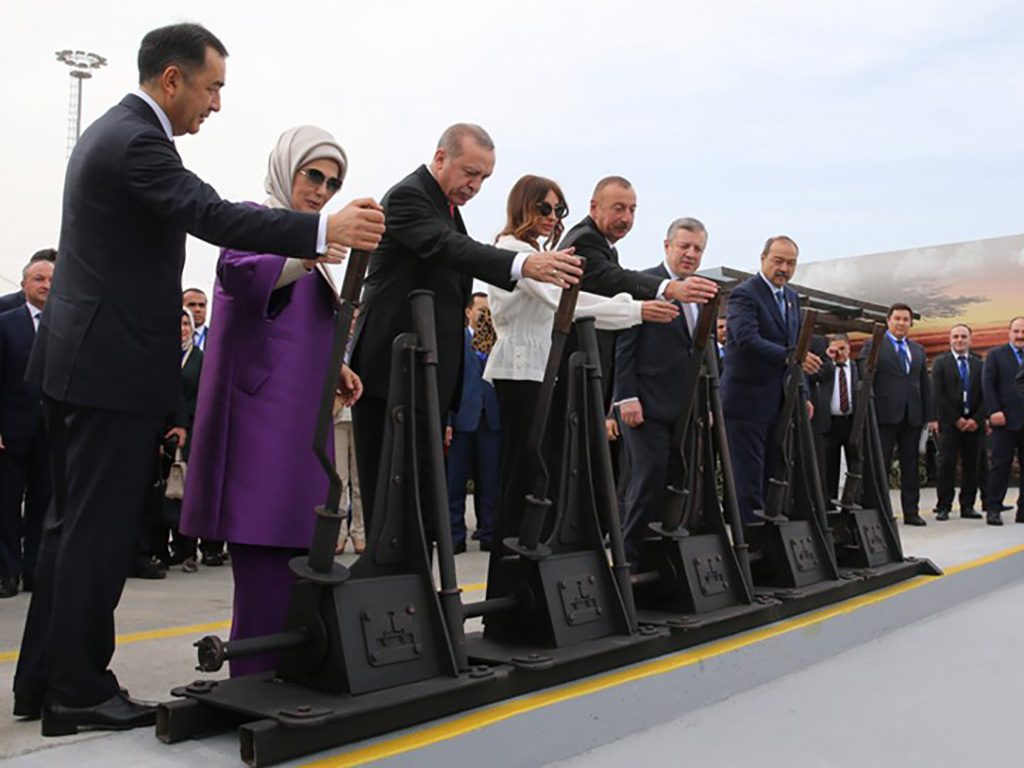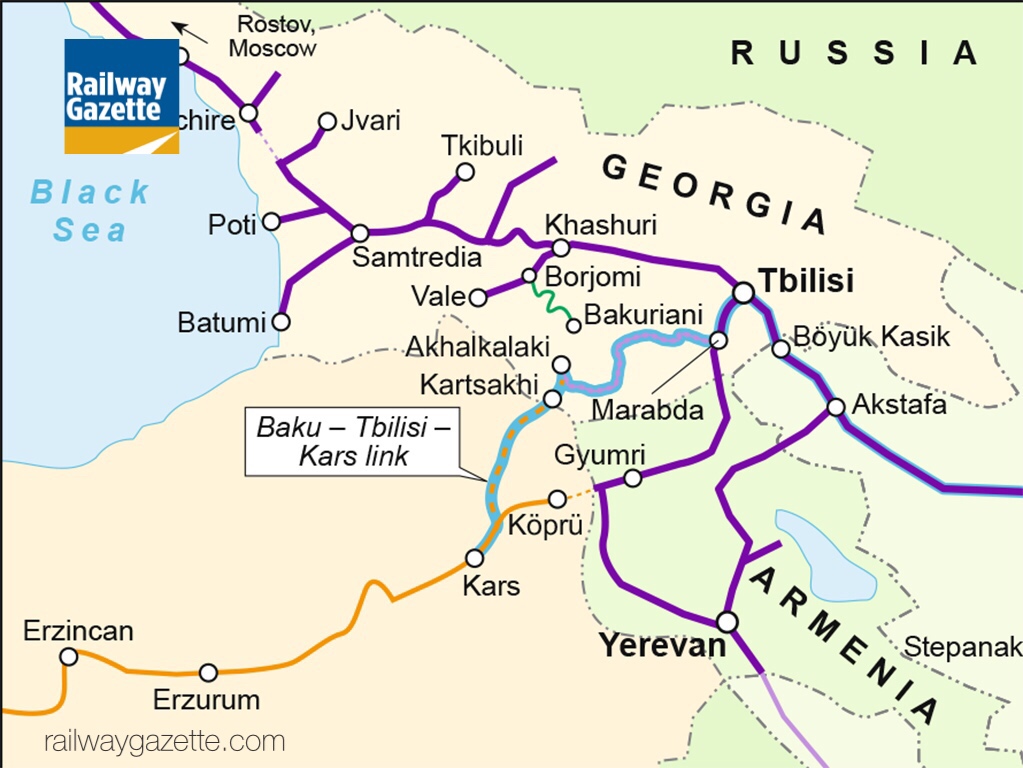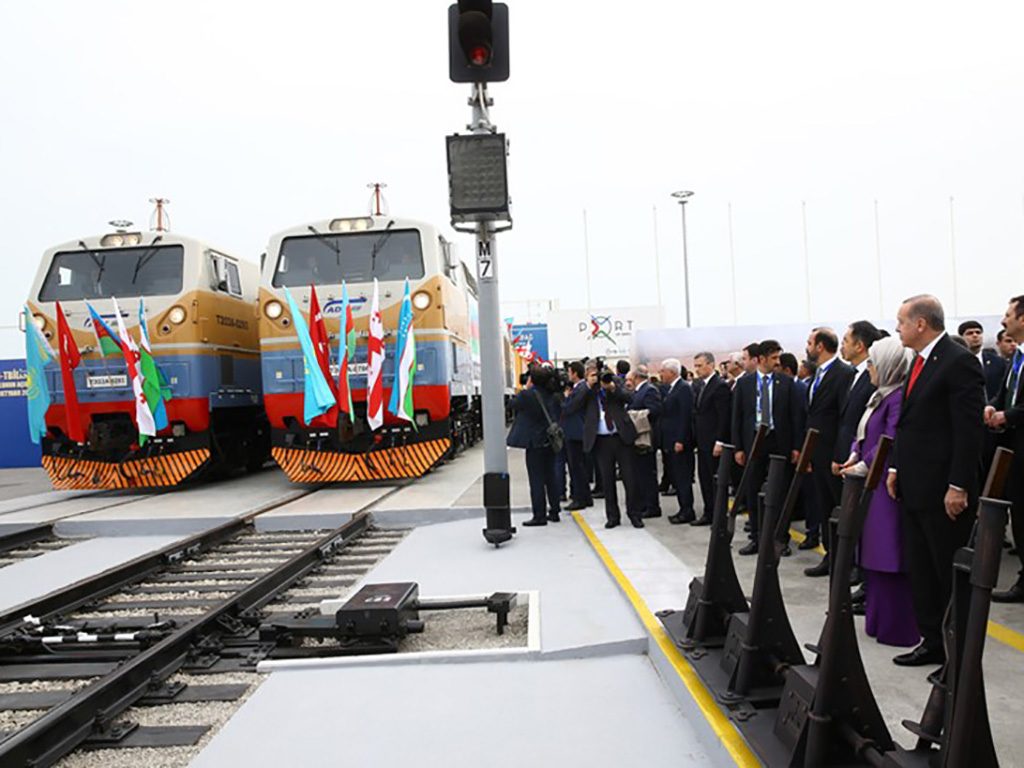Leaders from Turkey, Azerbaijan and Georgia launched a new Eurasian railroad link at a ceremony in the Azerbaijani capital of Baku last week. The 826-km (513 miles) Baku–Tbilisi–Kars (BTK) railway, which includes 105-km of new track, links the three countries and establishes a new land connection between Europe and China for both passengers and freight.
The route begins in Baku and ends in the Turkish city of Kars near the Georgian border, excluding the need to travel through Russia. It is projected to move around a million people and 5-6.5 million of tonnes of cargo each year. Turkish President Recep Tayyip Erdoğan, who spoke at the launch, expects the line’s capacity to rise to 3-million passengers and 17 million tonnes of freight by 2034.
President Erdoğan and Azerbaijani and Georgian leaders who also attended the inauguration have hailed the project’s potential to bring new opportunities to Turkey and the South Caucasus.
“There is no shorter way between Asia and Europe,” Azerbaijan’s President Ilham Aliyev said in an interview with Euronews. “Our goal for the future is to agree on tariffs to make it economically attractive. In the long-term, the volume of cargo will grow, and of course this means big profits, big revenues, new jobs and cooperation.”
Georgian Prime Minister Giorgi Kvirikashvili echoed these sentiments saying “this project links not only the economies of the countries, but also their people.”

President Erdoğan also praised the BTK as “priceless” and built “laboriously and devotedly” reported Turkey’s TRT World outlet. “So, we declare the establishment of a continuous railway link from London to China,” he added.
He also predicted that the railway would not only bring economic benefits but also contribute to Turkey and the Caucasus region in other ways. “Of course, this will substantially reduce the cost of freight,” he said, adding that the railroad “will politically bring peace, security and stability and, socially, it will bring welfare.”
The move was also well-received by Brussels. “The European Union welcomes the new rail corridor which, coupled with investments, improved infrastructure and logistics coordination will provide better connectivity, new business opportunities and increased trade,” said the EU’s ambassador to Turkey Christian Berger.
The BTK project began in 2007 with modernisation of railroads between Azerbaijan and Georgia before new construction started in 2008. The railway’s first cargo trains departed from Baku’s Alyat port last week. It now provides a viable alternative to the Russian rail link between China and Europe, which opened in April and takes on average 3-4 days longer running through Kazakhstan, Russia, Belarus, Poland, and into central Europe.

Challenges still exist to ensure the infrastructure for BTK lives up to politicians’ bold claims to make it a more efficient and attractive option than the Russian route. The track between Kars and Ankara, and the Sirkeci-Halkali line that runs from Istanbul’s European side, for example, both still need considerable investment for essential upgrades.
For Turkey however, the BTK railway’s completion marks what Mr Erdoğan referred to at the ceremony as “the most important leg of the Middle Corridor Project”. The Middle Corridor is a Turkish-led initiative to develop trade routes between Turkey, the Caucasus, Central Asia, China, Pakistan and Afghanistan.
The move has gained Chinese approval, and Ankara and Beijing signed a Memorandum of Understanding last year to align the scheme with China’s One Belt, One Road Initiative, a visionary plan launched in 2013 involving over 60 countries, which aims to establish a 21st Century 7,500 mile long Silk Road land trade route with three end destinations in Europe and Asia and a new maritime route.




